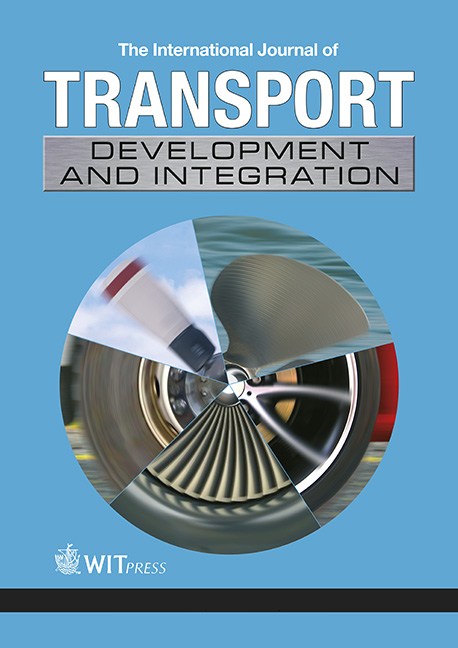Bike distribution model for urban data applications
Price
Free (open access)
Volume
Volume 3 (2019), Issue 1
Pages
11
Page Range
67 - 78
Paper DOI
10.2495/TDI-V3-N1-67-78
Copyright
WIT Press
Author(s)
Maricica Nistor And André Dias
Abstract
Bike sharing systems are fundamental sources of data for creating applications of monitoring the city and guiding the user’s choice for bike usage. Although many related works analyse the generated data by these urban bike systems with the scope of finding bike usage patterns, the variety of the cities and the lack of impact factors require further deeper investigations. We propose a simple, but efficient mathematical approach based on a Markovian model to predict the bike distribution for an urban sharing bike system considering the weather and event impacts. The model is applied for data collected from the New York city bike system. The main findings are relevant for the urban applications and are summarized as follows: (a) the model results substantially address the city’s characteristics, i.e., for the New York city, in terms of weather, only the temperature influences the bike usage, while regarding the events, the impact is insignificant, (b) the hourly bike distribution is predicted 1 day-ahead that is of particular interest to the city manager and (c) to the user who is able to know 1 day in advance the probability of finding an available bike or a free parking space at a specific station. Further city comparison analysis in terms of traffic, vehicle utilization and population density is provided for future purposes. Finding the precise station’s capacity is a forthcoming feature of the proposed model.
Keywords
data applications, mathematical modelling, urban bike distribution




